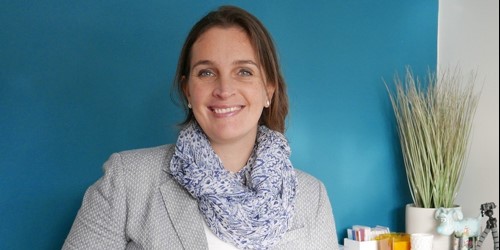
“A lot of people are doing more work online,” underlines Martins, who advises a cluster of clients in the construction and recruitment sectors.
“But just because it’s possible, it doesn’t mean it will work. I’ve had to give a lot of technical help to clients, whether it’s the tools required or the planning for it.
“There’s a process to move their business into a better way of doing things. But the good thing for trainers, for example, is they are already in this space. It’s not starting from scratch. They just need to get up to speed with the delivery.
“And when you’ve got something new to offer, you do need to make sure the marketing is right. By going online, there’s an alternative there for clients. But is it the same price point as something one-to-one?
“The challenge is to get the ideas and the concepts out there. I believe that perfect is the enemy of good. You need to get out there and then update and refine things."
It’s occasionally trial – and then error. A helping hand required, from time to time. An extra pair of eyes.
A client’s website, spotted Malaysia-based SmartPA team member, Syafiq Zakaria, had a Book Now page that clicked directly to a message saying bookings were unavailable.
Future clients, on a road to nowhere. A lucky spot, he acknowledges.
“We came up with the suggestion of linking the Book Now button straight to the waiting list form. The client then implemented this on their website straight away … as it was something they were totally unaware of.”
The road to self-improvement is not without its bumps.
That is where a little guidance comes into its own, Yorkshire-based SmartPA partner Sarah Mann believes.
Transformation can be seeking out better tech, better approaches, better policies, improved ways to operate now – and in the future.
Not always top of mind when dealing with today’s pressures and the short-termism of keeping the wheels turning and the lights on.
But there is never a bad time for a revolution. Especially when so many businesses and organisations have already coped with unprecedented change and seen that reinvention does not solely have to be the mother of necessity.
“I’ve found it’s a question sometimes of getting my clients on board and then showing them what is possible and where they can end up,” maintains Mann, who has engineered business process projects within a number of SMEs.
“There’s always a fear of some pain in changes but it’s also about making it work from the very outset. You have something new. If you can see how that process is better, that takes away the fear part. That the effects will be cost-effective.
“It’s like moving someone from Excel to a proper Customer Relationship Management software. You can suddenly see the information you need and even what’s missing.
“You can’t delete a column or a line accidentally, which helps. But you can make it work for you much more.”
In this age of remote working, shifting things around can underpin stability, she adds.
“I worked on a project where I was replacing the CRM. It takes a while to fully implement. It can be a step-by-step process. But what I saw, even during it, is that is was already linking people together better.
“Everyone can be so focused on their roles. You’ve seen in Covid, with everyone working from home, that they might not be talking directly as much. But if you’re linked together more by a system, everyone is on the same page and even complex processes come easier.”
And will remain so. Few expect there will be a regression to the normal of old. What worked in 2019 will be ancient history in 2022.
The quest for opportunity is a constant. Even when shop doors and offices re-open, when click and collect is not from two metres away, the nuts and bolts of delighting the audience will fit quite differently than in the past.
“I believe people will keep a blended approach,” Martins predicts. “We know everybody misses personal interaction. They still want that.
“But I doubt virtual services will go away. Because they’re also affordable to set up. It’s lower risk.
“You can win by experimenting. The clients I work with are keeping a lot more options open and embracing change.”
